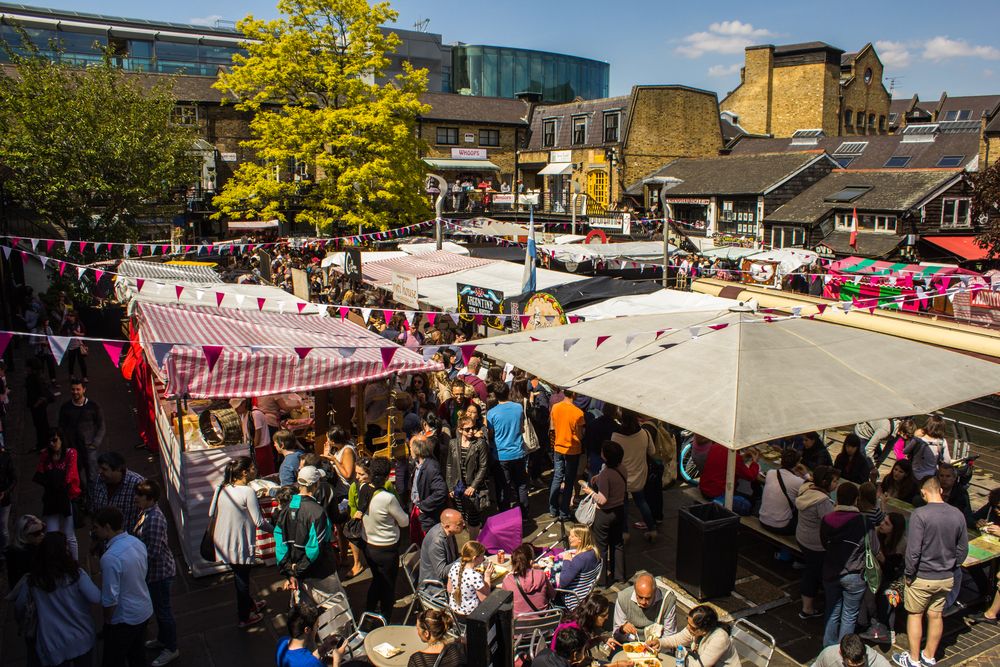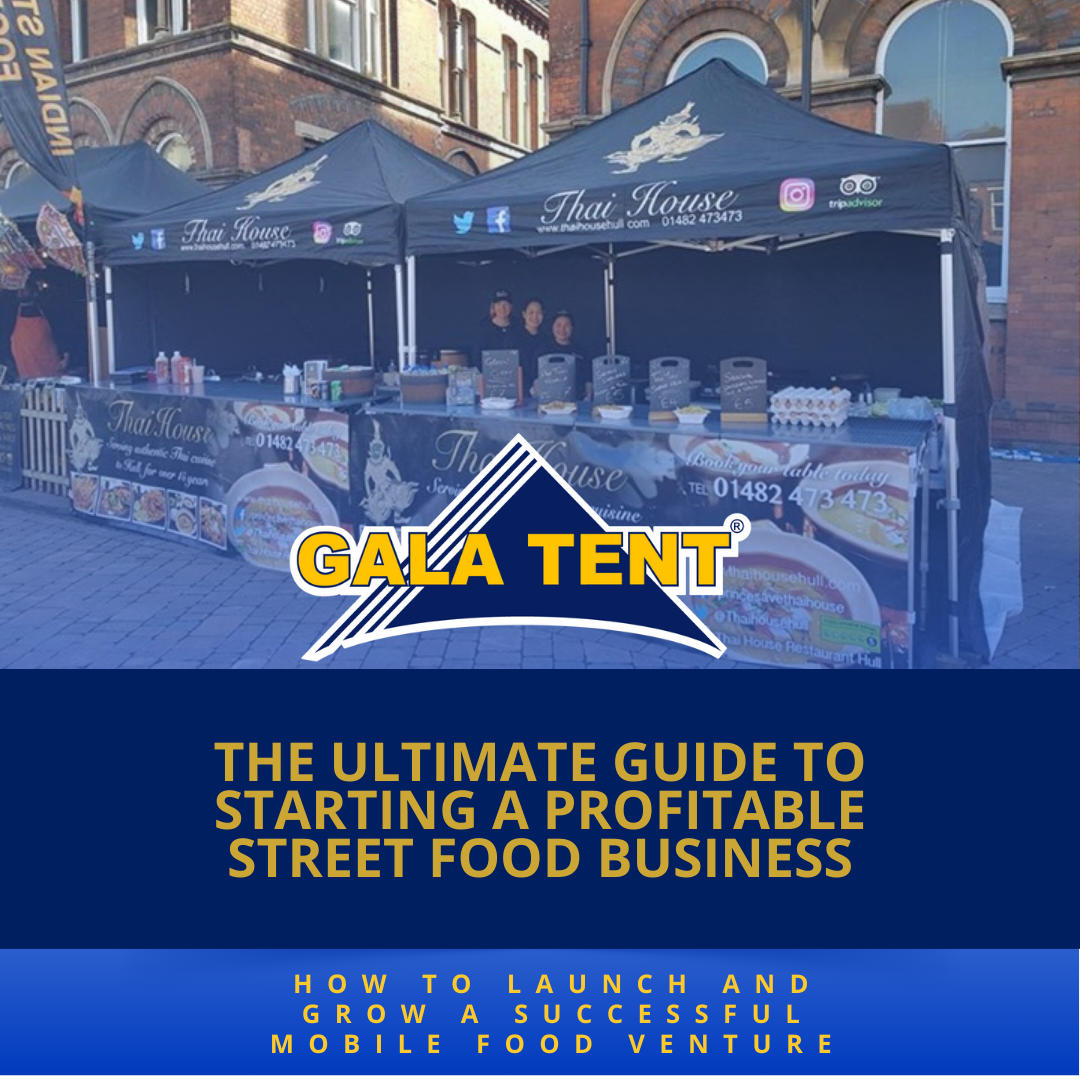Why Start a Street Food Business?
There’s something captivating about the street food scene. The energy, the atmosphere, the way it brings people together over incredible food—it’s a unique part of the culinary world. But beyond the romantic appeal, street food is big business. The UK market is worth over £1.2 billion, and that figure grows every year as more vendors hit the streets with innovative ideas and irresistible dishes.
But why should you consider starting a street food business? Whether you’re a budding chef or just looking for a new venture, this guide will walk you through the reasons why street food might just be the opportunity you’ve been waiting for.


What are the benefits of starting a Mobile Catering business?
1. Flexibility to Fit Your Lifestyle
One of the biggest draws of street food is the freedom it offers. Unlike traditional restaurants with set hours and fixed locations, street food businesses let you take control of your schedule and your setup.
Work Where You Want: Whether it’s a bustling urban market, a quiet rural festival, or a high-traffic food court, you can choose where to pitch your stall or park your van.
Work When You Want: Fancy doing the 9–5, or prefer weekend events? You set your hours. Many vendors balance their street food venture alongside other commitments.
Test Locations for Success: A key advantage is the ability to experiment with locations. If one market doesn’t bring in the customers you hoped, you can try another venue without the pressure of a long-term lease.
Pro Tip: Many new vendors start with weekend markets or local food events to build confidence and a customer base before committing to full-time operations.
2. Low Start-Up Costs
Launching a street food business is significantly more affordable than opening a restaurant or café. For aspiring entrepreneurs, it’s one of the best ways to break into the food industry without racking up massive debts.
Here’s a breakdown of typical start-up costs:
Gazebo Setup: A professional-grade pop-up gazebo (like the Pro 50) with custom branding can cost as little as £800–£1,200.
Mobile Catering Van: A second-hand van might set you back £10,000 or more—still cheaper than leasing a high-street space but pricier than a gazebo.
Additional Costs: You’ll need cooking equipment, storage solutions, and permits. Depending on your setup, these could range from £500 to £5,000.
Compared to the £50,000+ often required to launch a restaurant, street food is a much more accessible option. Plus, lower overheads mean you can turn a profit more quickly.
Pro Tip: If you’re starting on a shoestring budget, consider partnering with other vendors to share market fees or equipment costs.


3. Creative Freedom
In the world of street food, creativity reigns supreme. Unlike restaurants bound by a fixed menu or corporate branding, you have the freedom to build something uniquely yours.
Craft a Unique Menu: From gourmet burgers to plant-based bowls, the choice is yours. Start with a handful of signature dishes, then expand based on customer feedback.
Express Your Personality: Your stall’s look and feel should reflect your brand. Bright colours, catchy slogans, or quirky décor can make your setup stand out.
Engage Directly with Customers: Street food is personal. Chat with your customers, take their feedback, and build a loyal following.
Pro Tip: Don’t be afraid to adapt. The beauty of street food is its agility—if one dish isn’t selling, tweak it or try something new.

4. Thriving Market Opportunities
The street food industry isn’t just growing—it’s thriving. Once considered a novelty, street food has become a staple of British dining, offering vendors countless opportunities to find their niche.
Food Markets: Weekly and monthly food markets in cities and towns provide consistent venues for vendors. Popular spots like Borough Market in London and Digbeth Dining Club in Birmingham draw crowds year-round.
Festivals and Events: From music festivals to craft fairs, organisers rely on street food vendors to feed their audiences. Many vendors report their biggest profits from these events.
Corporate and Private Events: Companies are increasingly hiring street food vendors for staff parties, while weddings and birthdays are opting for the charm of gourmet stalls over traditional catering.
Pro Tip: Research your target audience. A bustling urban area might favour trendy, Instagram-worthy dishes, while rural markets could prefer hearty, classic fare.

5. A Rewarding Career
Beyond the financial benefits, street food is an incredibly fulfilling career. You’re not just selling food—you’re sharing your passion with every plate.
See Your Impact: Few things are as rewarding as watching customers enjoy the food you’ve crafted.
Be Your Own Boss: Build a business that reflects your values and vision, without answering to anyone but yourself.
Join a Community: The street food world is full of like-minded entrepreneurs who share advice, support, and camaraderie.
Pro Tip: Keep a journal of your journey—it’s easy to get caught up in the hustle, but reflecting on your growth can be deeply satisfying.
Inspired to start your street food journey? Discover the Essential Equipment for Your Street Food Business to learn what you’ll need, or explore our Best Street Food Gazebos to find the perfect shelter for your setup.
Frequently Asked Questions
How do I know if street food is right for me?
If you’re passionate about food, enjoy interacting with people, and want a flexible, creative career, street food is a great fit.
How much can I earn in the street food business?
Profits vary widely depending on your location, menu, and operating hours, but many vendors report earning between £500–£1,500 per day at busy events.
What permits do I need to sell street food?
You’ll need a street trading licence, food hygiene certification, and potentially public liability insurance. Always check with your local council for specific requirements.

 Alexandrea
Alexandrea